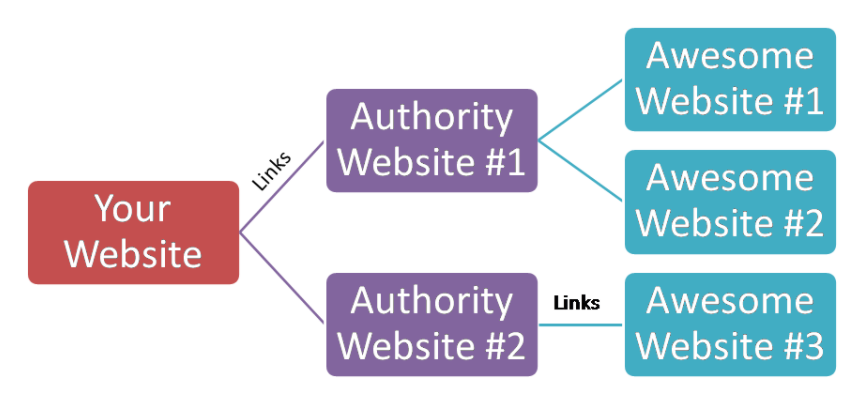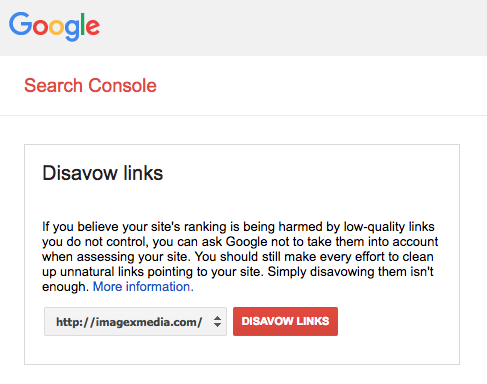Backlinks for SEO
It can sound a little old fashioned to be talking about backlinks and SEO. However, Google still considers the sites that link to you one of the most important indicators of your website's quality. The key is understanding that the quality of the links are far more important than the quantity.
Backlinks Are a Top Ranking Signal
When Backlinko analyzed one million Google search results, they learned that the number of domains linking to a page correlated more directly with rankings that any other signal. It makes sense: when a site has many backlinks, it’s a sign that it is well-regarded. Numerous backlinks from highly trustable sources say that a site is high quality and authoritative. Before getting caught up in a race to accumulate sheer quantity of backlinks, however, it's important to consider which links are most effective. Some backlinks are extremely helpful in building your rank. Others can damage your SEO ranking.
What Makes a Backlink Effective?
Not every link has the same weight. Just as we are more likely to trust medical advice from a doctor than we are to trust random strangers, Google and other search engines trust sites that are authoritative and well-respected in their own right. The number of domains linking to a site is also highly relevant. A hundred links from a single domain counts far less than individual links from 100 different domains. The first says that a single source considers your site worth linking to; the second says that a wide range of sources find your website worthwhile. Search engines also listen to the directions that they are given with a backlink. If a link is nofollow, the search engine is less likely to give that link weight. 
Monitoring and Managing Your Backlinks
There are a number of tools available that will show you which sites link to you and whether they are considered valuable links. Google Search Console has a Search Traffic section that can provide a list of all of the sites that link to yours. This list can be downloaded into a .csv and sorted so you can look at the newest links. While this tool does not give an analysis of the quality of the sites that link to you, it can give you one of the most complete records of your backlinks. Going through the list manually on a regular basis can give you an idea who is linking to you and why. If you are looking for second opinions on which links are working for you, Moz's Open Site Explorer is an excellent reference. Enter the URL of your site, and Moz will tell you which sites link to it and those sites' spam scores. This is a quick and easy way to discover what authorities think of the sites that link to yours.
When Should You Disavow a Link?
Low quality, or spammy, sites can hurt the ranking of your site. Because this signal can negatively affect your rankings, Google has provided a way for webmasters to disavow links that they do not want to be counted. However, disavowing links is an advanced activity and should be used sparingly and judiciously. Disavowing some links can backfire and hurt your ranking more than it helps. Which links should you disavow? Start with these types of backlinks:
- Links from sites set up as backlink farms. These are sites designed to trick search engines into giving a better ranking. Google is very clear about their preference for content that is unique, and useful to users.
- Links with over-optimized anchor text. The typical anchor text in most backlinks is going to simply be the name of the business or the domain of the website. When too many backlinks are anchored to exact keywords, it can look suspicious to search engines.
- Links in comment spam. Comment links are, in and of themselves, not a bad thing, but they can be damaging when they are originating in generic, and spam type comments.
- Links from outside the relevant geographic area. If you do business with a local audience in Poughkeepsie, New York, backlinks from Turkey and Russia are unlikely to be relevant to your business.
- Links from duplicate content. Despite the fact that Google's Panda update heavily punished these sites, many black hat SEO companies still use sites with duplicated content to generate backlinks. If the full content of an article that links to you shows up on a number of sites, chances are good that it is a spam site.

How to Get the Backlinks That Help Most
After learning which links can help and which can hurt, the next task is cultivating more of the former. This is not a process that happens overnight. Focus first on creating valuable content. When your site contains information that is useful to people in your niche, people are far more likely to link to it organically. Emailing specific individuals and asking them to link to your site remains a powerful way to get high quality backlinks. Do not send an email blast though. Send personalized messages to specific site owners. Make it clear that you've read and understood the purpose of their site. Good emails are more likely to get engage and open up a conversation. Building a strong network of quality backlinks is an ongoing tasks, but one that can have tremendous value, and payout huge dividends. Remember, the primary goal of any SEO tactic is to rank well overtime. Let talk digital.
Main photo by Tanner Van Dera on Unsplash



